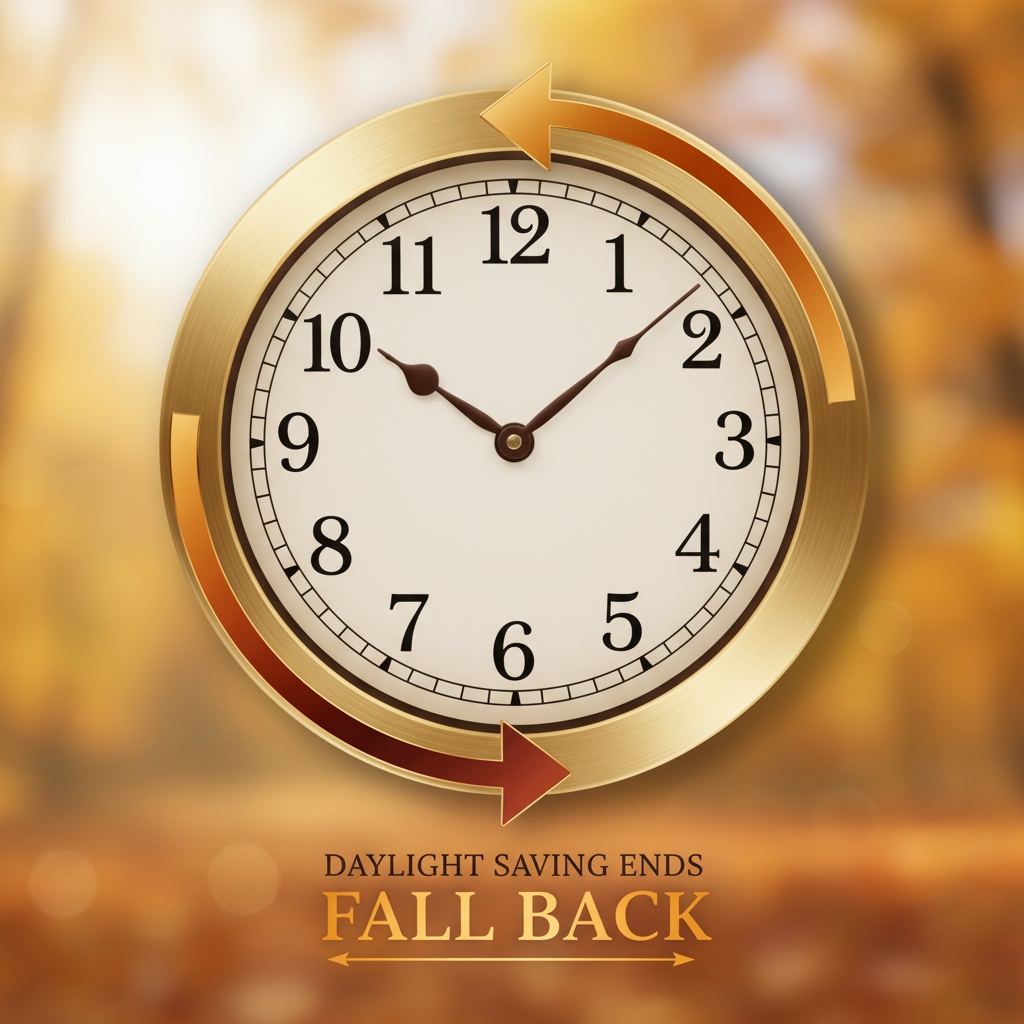
Don’t forget to set your clocks back one hour before bed this Saturday night! Daylight saving time ends at 2:00 a.m. on Sunday, November 2, 2025, giving us all an extra hour of sleep but also ushering in earlier sunsets and darker evenings.
The History Behind “Falling Back”
The practice of changing our clocks twice a year has roots dating back to World War I. Germany first implemented daylight saving time in 1916 to conserve fuel during wartime, and the United States followed suit in 1918 with the Standard Time Act. The idea was simple: shift an hour of daylight from morning to evening during warmer months to reduce the need for artificial lighting and save energy.
While the energy-saving benefits are now debated, the tradition has persisted for over a century. Daylight saving time was standardized nationally by the Uniform Time Act of 1966. The Energy Policy Act of 2005 later changed the start and end dates beginning in 2007, establishing the current schedule of the second Sunday in March and the first Sunday in November.
What It Means for Berea
The end of daylight saving time brings both benefits and challenges for our community. That extra hour of sleep Sunday morning is welcomed by many, but the earlier sunsets mean darkness arrives by around 5:30 p.m., significantly impacting evening activities and routines.
Local Businesses Adjust
For entertainment venues like The Spotlight Playhouse, the time change coincides perfectly with their Monster Mash Cabaret performances this weekend—Saturday at 6:00 p.m. and Sunday at 2:00 p.m. The Playhouse’s upcoming productions, including Something Rotten Jr. (November 7-16) and Dracula: The New World (November 7-9), will all take place under the new standard time schedule.
“Theater schedules don’t change, but our audiences do,” notes the reality of live performance venues. Evening shows that once felt like late-night outings now begin well after sunset, creating a cozier, more intimate atmosphere for fall and winter productions.
Churches and Community Gatherings
Local churches will welcome congregations at their regular service times Sunday morning—though many attendees may arrive feeling a bit more rested with that bonus hour. Wednesday evening services, Bible studies, and community gatherings will now take place entirely after dark, a shift that continues until spring.
The Berea Farmers Market transitions to its winter schedule this Saturday, November 1, moving indoors to 207 N. Broadway Street with new hours of 10:00 a.m. to 1:00 p.m. The earlier closing time aligns well with the season’s shorter days, allowing vendors and shoppers to complete their market visits while daylight remains.
Outdoor Activities and Safety
For outdoor enthusiasts, the time change means afternoon hikes at The Pinnacles or Indian Fort Mountain require earlier starts. What was once a leisurely 4:00 p.m. trail walk now takes place in fading light. Local hiking groups and outdoor recreation businesses adjust their schedules accordingly, with most group activities moving to morning and early afternoon time slots.
The earlier darkness also brings safety considerations. Pedestrians walking along Chestnut Street or through the Artisan Village should be extra cautious during evening hours, as drivers adjust to reduced visibility. Reflective clothing and flashlights become essential gear for anyone out after 5:30 p.m.
Tips for Adjusting
Health experts recommend several strategies to ease the transition:
Before the change:
- Go to bed 15-30 minutes earlier Saturday night
- Avoid caffeine after 2:00 p.m. on Saturday
- Get morning sunlight exposure to help reset your internal clock
After the change:
- Maintain consistent sleep and wake times
- Use bright lights in the morning to help adjust
- Consider light-blocking curtains if early morning sun disrupts sleep
- Be patient—most people adjust within a few days
Children and pets often need extra time to adapt to schedule changes. Parents may want to gradually shift bedtimes and meal times in the days following the time change.
The Silver Lining
While darker evenings take some getting used to, the time change brings its own seasonal charm. Earlier sunsets mean cozier evenings at home, perfect for fall activities like reading, baking, or enjoying hot chocolate by the fireplace. Local restaurants and cafes often see increased dinner traffic as people embrace the “night comes early” mindset.
The holiday season also benefits from the earlier darkness—Christmas lights and seasonal decorations become visible sooner, extending the hours we can enjoy festive displays throughout Berea’s downtown and neighborhoods.
Looking Ahead
Standard time will remain in effect until Sunday, March 8, 2026, when we’ll “spring forward” once again. Until then, Berea residents can embrace the rhythm of shorter days and longer nights, a natural reminder of the changing seasons in our beautiful Kentucky community.
So set those clocks back Saturday night, enjoy that extra hour of sleep, and remember to check your smoke detector batteries while you’re at it—a time-honored tradition that coincides with the time change twice a year.
